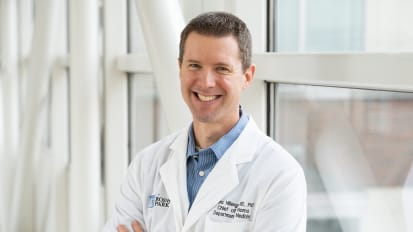Join Us: Upstate New York Hematology & Hematologic Oncology Conference: Updates from the 65th ASH Annual Meeting

This CME-accredited activity, the Upstate New York Hematology & Hematologic Oncology Conference: Updates from the 65th ASH Annual Meeting, is a two-day symposium designed to provide an engaging and interactive forum for discussing the latest breakthroughs in benign and malignant hematology. The conference will feature lectures and panel discussions by regional experts from the Upstate New York region and invited nationally recognized experts from leading institutions across the United States. This symposium will offer in-depth coverage of the entire spectrum of malignant hematology topics, including lymphoid, myeloid, and plasma cell neoplasms, as well as benign hematology topics and considerations for special populations. This activity aims to improve knowledge and advance the ability of hematology oncology providers to apply current and emerging treatment strategies in managing benign and malignant blood disorders to improve patient outcomes.
Expert faculty will contextualize potentially practice-changing research, including the abstracts presented at the 65th ASH Annual Meeting in December 2023 (ASH23), and discuss how the results may alter the current standard of care. This conference will emphasize a multidisciplinary approach and the integration of new advances into patient-centered care.
TARGET AUDIENCE
- Hematologists, Oncologists
- Surgeons
- Radiation Oncologists
- Physician Assistants/Nurse Practitioners
- Pharmacists
- Nurses
Click here to learn more or register now


